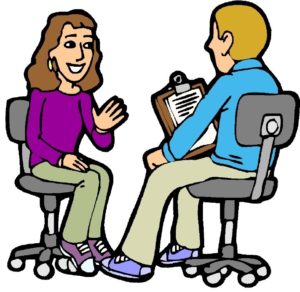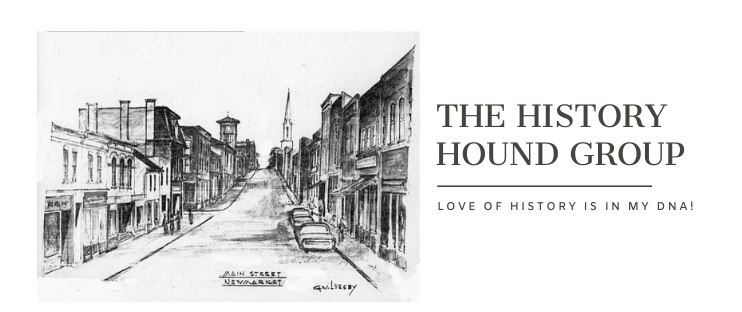
Oral Histories
Interviewing Relatives / Friends and Collecting Oral History
Learn how to conduct a family interview or collect a meaningful oral history. Plus, browse extensive online oral history collections, get help from various oral history associations, and find groups which collect and preserve oral histories.
Why Oral History?
Oral histories are stories told by living people about the past. Generally, these are stories of their own life and the lives of the people around them. An oral history includes details and stories that exist nowhere other than in the individual’s mind. Therefore, preserving oral history and family stories should be a top priority for any family historian.
Elderly grandparents, parents, aunts and uncles, and other relatives all have valuable information to share about your family history, whether they know it or not.
All you have do is ask the right questions.
Select an Interviewee
In many families there is a person who is generally known to be the family historian – the one person who everyone believes has the most information about the family tree. Ask your relatives who they think would know the most about your family and, if the same person’s name keeps coming up, then that is where you start your search. Other good people to start with include your mother and father and grandparents. One more important thing to keep in mind as you are making your list of people to talk to is whether there is someone in the family who is really getting on in years. While it is sad to think about, they won’t be around forever. Additionally, they may become mentally, verbally, physically or visually impaired, which may affect their speech, tolerance for a long interview, or ability to remember people, places and events.
Some people might be hesitant to talk about themselves, thinking that they don’t have any information of value or that their stories really aren’t worth hearing.
Convince them otherwise. Everyone’s story is unique and all of us deserve to be remembered.
Tip! Oral history doesn’t have to mean a one-on-one formal interview. Some of the best stories come from getting a group of family members together around the kitchen table with a cassette or video recorder running in the corner.
Choose an Approach
Face to Face
If you have the opportunity to meet face to face with your family member, this is usually the best option. It offers the opportunity for a comfortable environment, back-and-forth participation, video recording and the personal touch that is so hard to achieve long distance.
By Mail
Send an introductory letter or email to create a rapport with your relative by telling them about yourself, your family and why you are so interested in the family history. Follow this up with a list of open-ended questions. You will find this usually results in a much better response than a letter saying “tell me everything about the family” or a list of fill-in-the blank questions. Increase your chances of a reply by including a self-addressed, stamped return envelope.
Email is a wonderful invention which can be successfully used to collect oral histories, but you will also often find that is is something which many of your relatives, especially the older ones, don’t trust or don’t have access to.
If you have a family member who loves email, then by all means use it, but don’t expect to gather much useful information that way from someone who seems reluctant about the whole process.
By Phone
Phone interviews can be tough, especially when you are interviewing relatives you hardly know, but they also offer the back-and-forth exchange that you can’t easily achieve through the mail. A phone interview is also a practical way to reach relatives that live too far to justify an in-person interview, and can also make it easier to collect information over an extended period of time.
Be prepared for a bit of gruffness when calling distant relatives who don’t know who you are. They may not trust your motivations. Here, an introductory letter followed up by the phone call may do wonders.
Conduct Background Research
Prepare for your oral history interview by learning everything you can about the person you plan to interview. This will help you develop specific questions or otherwise tailor the interview to the unique perspective offered by that individual. Basic knowledge of your subject will also confirm to her your interest, and assist you in developing a rapport.
Spend time reviewing what you know about the people in your family tree, as well. The more familiar you are with your family, the easier it is to follow up interesting clues that pop up during the interview. This includes creating a quick family tree chart, if you don’t have one already, to provide as an easy, at-a-glance reminder of family relationships
Create a Question List
Questions help your family member remember, therefore asking the right questions will give you the greatest chance of success in a family history interview. When deciding which questions to ask, think about your objectives: What do you already know? What do you want to learn? About which people and events is your family member likely to be the most knowledgeable?
As you prepare your questions keep the following important points in mind:
• Do your research. Have your family charts and notes in front of you to help you formulate questions to fill in some of the holes in your research.
• Use open-ended questions that encourage personal commentary, rather than close-ended questions that only require “yes” or “no” answers.
• It’s always important to gather some basic facts, but it’s almost more important in a family history interview to elicit stories – the type of information you
won’t always find at the courthouse. Instead of the basic who, when, and where, think how, what, and why.
• Try to elicit facts as well as feelings and descriptions. While you should always try to elicit such details as names and dates, remember that facts also include
finding out how, why, where and with what results.
• People’s memories are generally tied to specific triggers. Ask questions about specific events or other concrete experiences, such as a description of a typical
Saturday morning at home.
Prepare for the Interview
While it may seem silly to create a plan for talking to your own family members, it is something which will greatly improve your chances for success. Take the time to make an appointment with your family member, prepare for the interview and decide on a list of questions, ranked in order of importance. Send the interviewee a list of your questions or summary of the topics you want to cover in advance, if possible. This gives them time to think about people and events that may not have occurred to them in a long time, and can often improve the actual interview.
Be prepared for your visit with a notebook, several sharpened pencils and a cassette or video recorder (including extra tapes and batteries) if you plan to use one. An oral or video record of the interview is a big plus as it means you can spend more time developing a rapport with your interviewee and less time scribbling madly.
Do not plan to record the interview if this really makes your relative uncomfortable, however. You should also bring your pedigree chart (those gaps of missing information may spark memories), family photos and other information which you have collected about the family. You can also collect oral histories from distant relatives via letter, phone or even email!
Conduct the Interview
Arrive early for your interview and set up and test all of your recording equipment. The less you fiddle with it after your subject arrives, the less intimidating it will be. Be sure the room you choose is comfortable and free of outside noise and distractions. Once your interviewee arrives, settle them in a comfortable chair and offer them water or other refreshment.
If you’re taping the interview, begin by stating your name, the interviewee’s name, the date and the location. Then, to help everyone relax, start with a few simple, easy questions; a story you’ve heard them tell many times; or even a little off-topic chit-chat. If your interviewee seems uncomfortable talking about herself, then ask some simple questions about her mother or grandmother. Once everyone is more comfortable you can move on to the personal questions.
Wait! You’re Not Done Yet
Just because you’ve turned the recorder off doesn’t mean the interview is over. Now is the time to say thank you, to chat about what you’ve learned together, and sometimes to hear even more stories. Be sure that the interviewee understands what you plan to do with the interview and is comfortable with the arrangements.
If you have recorded the interview, label everything – every side of every tape or CD, the spine of the box, and your interview notes. If you have multiple tapes, mark what tape it is (i.e. “tape 1 of 3”).
Once you’re back home, sit down and make a transcription of your interview. Then send a copy to the interviewee along with a thank you note.
